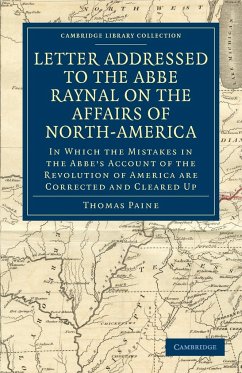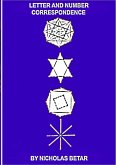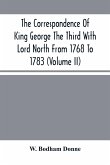Thomas Paine
Letter Addressed to the Abbé Raynal on the Affairs of North-America
28,99 €
inkl. MwSt.
Versandfertig in 1-2 Wochen

14 °P sammeln
Thomas Paine
Letter Addressed to the Abbé Raynal on the Affairs of North-America
- Broschiertes Buch
- Merkliste
- Auf die Merkliste
- Bewerten Bewerten
- Teilen
- Produkt teilen
- Produkterinnerung
- Produkterinnerung
Written in response to Abb Raynal's account of the American Revolution, this 1782 work attempts to correct Raynal's alleged misconceptions.
Andere Kunden interessierten sich auch für
![A Statement, Letters, and Documents, Respecting the Affairs of Trinidad A Statement, Letters, and Documents, Respecting the Affairs of Trinidad]() Fullarton FullartonA Statement, Letters, and Documents, Respecting the Affairs of Trinidad23,99 €
Fullarton FullartonA Statement, Letters, and Documents, Respecting the Affairs of Trinidad23,99 €![Letter To John Murray, Touching Lord Nugent Letter To John Murray, Touching Lord Nugent]() Robert SoutheyLetter To John Murray, Touching Lord Nugent16,99 €
Robert SoutheyLetter To John Murray, Touching Lord Nugent16,99 €![Tips with letter template Tips with letter template]() Robert StoneTips with letter template69,99 €
Robert StoneTips with letter template69,99 €![Letter and Number Correspondence Letter and Number Correspondence]() Nick BetarLetter and Number Correspondence9,49 €
Nick BetarLetter and Number Correspondence9,49 €![Who Begot Thee? Some Genealogical And Historical Notes Made In An Effort To Trace The American Progenitors Of One Individual Living In America In 1903 (1903) Who Begot Thee? Some Genealogical And Historical Notes Made In An Effort To Trace The American Progenitors Of One Individual Living In America In 1903 (1903)]() Gilbert Oliver BentWho Begot Thee? Some Genealogical And Historical Notes Made In An Effort To Trace The American Progenitors Of One Individual Living In America In 1903 (1903)15,99 €
Gilbert Oliver BentWho Begot Thee? Some Genealogical And Historical Notes Made In An Effort To Trace The American Progenitors Of One Individual Living In America In 1903 (1903)15,99 €![Middletown Upper Houses; a history of the north society of Middletown, Connecticut, from 1650 to 1800, with genealogical and biographical chapters on early families and a full genealogy of the Ranney family Middletown Upper Houses; a history of the north society of Middletown, Connecticut, from 1650 to 1800, with genealogical and biographical chapters on early families and a full genealogy of the Ranney family]() Charles Collard AdamsMiddletown Upper Houses; a history of the north society of Middletown, Connecticut, from 1650 to 1800, with genealogical and biographical chapters on early families and a full genealogy of the Ranney family79,99 €
Charles Collard AdamsMiddletown Upper Houses; a history of the north society of Middletown, Connecticut, from 1650 to 1800, with genealogical and biographical chapters on early families and a full genealogy of the Ranney family79,99 €![The Correspondence Of King George The Third With Lord North From 1768 To 1783 (Volume Ii) The Correspondence Of King George The Third With Lord North From 1768 To 1783 (Volume Ii)]() W. Bodham DonneThe Correspondence Of King George The Third With Lord North From 1768 To 1783 (Volume Ii)30,99 €
W. Bodham DonneThe Correspondence Of King George The Third With Lord North From 1768 To 1783 (Volume Ii)30,99 €-
-
-
Written in response to Abb Raynal's account of the American Revolution, this 1782 work attempts to correct Raynal's alleged misconceptions.
Hinweis: Dieser Artikel kann nur an eine deutsche Lieferadresse ausgeliefert werden.
Hinweis: Dieser Artikel kann nur an eine deutsche Lieferadresse ausgeliefert werden.
Produktdetails
- Produktdetails
- Verlag: Cambridge University Press
- Seitenzahl: 84
- Erscheinungstermin: 5. Mai 2011
- Englisch
- Abmessung: 216mm x 140mm x 5mm
- Gewicht: 119g
- ISBN-13: 9781108031912
- ISBN-10: 1108031919
- Artikelnr.: 33626887
- Herstellerkennzeichnung
- Libri GmbH
- Europaallee 1
- 36244 Bad Hersfeld
- gpsr@libri.de
- Verlag: Cambridge University Press
- Seitenzahl: 84
- Erscheinungstermin: 5. Mai 2011
- Englisch
- Abmessung: 216mm x 140mm x 5mm
- Gewicht: 119g
- ISBN-13: 9781108031912
- ISBN-10: 1108031919
- Artikelnr.: 33626887
- Herstellerkennzeichnung
- Libri GmbH
- Europaallee 1
- 36244 Bad Hersfeld
- gpsr@libri.de
Common SenseThomas Paine1776 Common Sense is a pamphlet written by Thomas Paine in 1775-1776 advocating independence from Great Britain to people in the Thirteen Colonies. Writing in clear and persuasive prose, Paine marshaled moral and political arguments to encourage common people in the Colonies to fight for egalitarian government. It was published anonymously on January 10, 1776, at the beginning of the American Revolution, and became an immediate sensation.It was sold and distributed widely and read aloud at taverns and meeting places. In proportion to the population of the colonies at that time (2.5 million), it had the largest sale and circulation of any book published in American history. As of 2006, it remains the all-time best-selling American title and is still in print today.Common Sense made public a persuasive and impassioned case for independence, which had not yet been given serious intellectual consideration. Paine connected independence with common dissenting Protestant beliefs as a means to present a distinctly American political identity and structured Common Sense as if it were a sermon. Historian Gordon S. Wood described Common Sense as "the most incendiary and popular pamphlet of the entire revolutionary era."The text was translated into French by Antoine Gilbert Griffet de Labaume in 1790.Paine arrived in the American colonies in November 1774, shortly before the Battles of Lexington and Concord. Though the colonies and Great Britain had commenced hostilities against one another, the thought of independence was not initially entertained. Writing of his early experiences in the colonies in 1778, Paine "found the disposition of the people such, that they might have been led by a thread and governed by a reed. Their attachment to Britain was obstinate, and it was, at that time, a kind of treason to speak against it. Their ideas of grievance operated without resentment, and their single object was reconciliation." Paine quickly engrained himself in the Philadelphia newspaper business, and began writing Common Sense in late 1775 under the working title of Plain Truth. Though it began as a series of letters to be published in various Philadelphia papers, it grew too long and unwieldy to publish as letters, leading Paine to select the pamphlet form.Benjamin Rush recommended the publisher Robert Bell, promising Paine that although other printers might balk at the content of the pamphlet, Bell would not hesitate or delay its printing.







